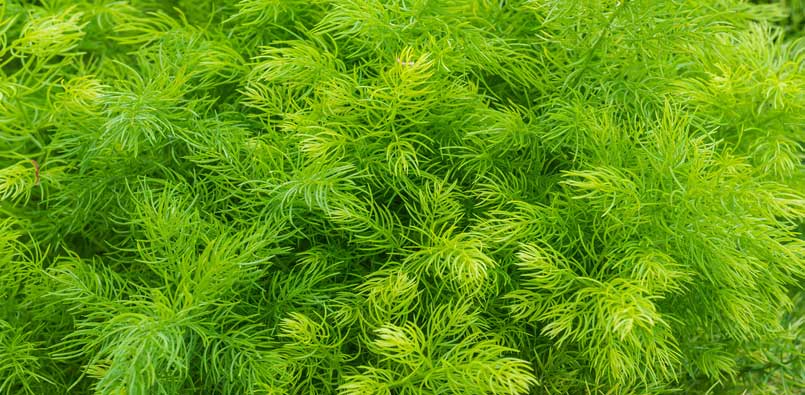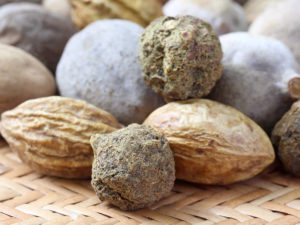Ayurveda Dosha Types
Vata, pitta and kapha are collectively known as the doshas in Ayurveda. This is one of the most fundamental concepts in the tradition of Ayurvedic treatment. But, have you ever thought, what they are exactly? In short, these doshas are the energetic forces of nature. There are 3 main ayurveda dosha types that can be balanced to maintain the best health possible.
These are the functional principles which help us to understand ourselves better and also the world around us. This article will help you in finding out the doshas which make up your constitution. It will also help in understanding the states of imbalance and other aspects.
Vata, Pitta and Kapha- each one of them is essential to a healthy body. So no one dosha is better than or superior to any of the other. Each of these doshas has a very specific set of roles to play in the human body. So, when these doshas are out of balance, it can be havoc on someone’s health.
Before getting into the specifics of these three doshas, let’s understand their elemental composition and their role in the human body.
In Ayurveda, ether, fire, air, water and earth are the basic building blocks of the material world.
Vata is usually characterized by the mobile nature of Wind energy. Pitta resembles the transformative nature of the fire energy. Kapha reflects the water energy.
All of the doshas contain all five elements. But each of these is predominantly composed of two elements. The mix is as follows: Vata(Air + Ether), Pitta(Fire + Water) and Kapha(Water + Earth).
Ayurveda Doshas explained
These three doshas are usually found in everyone and every other thing. It usually is present in different proportions. These doshas combine to create different climates, different species, different foods and even different individuals of the same species. The ratio of vata, pitta and kapha provides us with a blueprint for a perfect health. This is true for each of us.
This is referred to as our constitution. This garners a significant influence on our mental, physical and emotional character traits. This is also responsible for our unique strengths and vulnerabilities. Everybody should have a knowledge of their Ayurvedic constitution. If you don’t know yours, please consider visiting an Ayurvedic practitioner.
This assessment of both your constitution and the current state of balance will help in future. This will help in getting personalized food and exercise recommendations designed to support you in maintaining optimal health. Ayurhealing, the best Ayurveda hospital in Bangalore helps you in getting familiar with the Doshas.
Check out Dr. Mini Nair speaks about How to know your Dosha in Ayurveda?
Qualitative Nature of the Doshas
Mentioned are the 3 Ayurveda dosha types. Each dosha has a collection of qualities. They are as follows:
Dosha Qualities
- Vata- Dry, Cold, Light, Subtle, Rough, Clear
- Pitta- Hot, Spreading Sharp, Liquid, Light, Oily
- Kapha- Heavy, Oily, Slow, Smooth, Cool, Soft, Gross, Dense, Stable, Sticky
These qualities help in balancing the doshas very intuitively. Because, in Ayurveda, like increases like and the opposites balance each other. If anyone of the doshas is aggravated, then we can promote a return to balance by decreasing the influence of that particular dosha’s qualities. At the same time, favoring their opposites. If we know which of the specific qualities are aggravated, then we can focus on pacifying those particular qualities. This can be done by favoring foods, herbs and some experiences which will amplify the opposing energies.
Functionality of Doshas
The three doshas have a unique personality and we will show you the vata, pitta and kapha characteristics. They are determined by their particular combination of elements and qualities. Each dosha naturally governs a few physiological functions:
- Vata governs Communication and Movement
- Pitta oversees Transformation and Digestion
- Kapha oversees Structure, Cohesiveness and Lubrication
While the doshas are present everywhere in nature, they are supportive in understanding the living organisms, particularly ourselves.
Ayurvedic Body Types
As you have found the main Ayurveda dosha types. You can now find how these doshas affect the body.
1. Vata Dosha:
It embodies the energy of movement. Vata is often associated with wind and the air element. It is linked to flexibility and creativity. Vata governs all the movement including the breath, the heart pulsation, muscle contractions, the tissue movements, the cellular mobility. It also governs the communication between the mind and the nervous system.
2. Pitta Dosha:
It represents the transformation energy and is closely aligned with the fire element. In living organisms, pitta is largely liquid form. Pitta is neither mobile nor stable. It spreads like the warmth of a fire and thus permeates its surroundings. It also resembles like the water which flows in the direction of terrain. Pitta is closely related to understanding, intelligence and the digestion of foods. It is also associated with emotions, thoughts and experiences. It also governs nutrition and the metabolism of the human body, the temperature and also the light of understanding.
3. Kapha Dosha:
Kapha lends the structure, the solidity, and the cohesiveness to all things. It is associated primarily with the water and earth elements. It also embodies the watery energies of compassion and love. Kapha hydrates all the cells and systems. It lubricates the joints, also moisturizes the skin. It maintains the immunity level and thus protects the tissues.
Understanding the Doshas in our Life
Remember that we all have innate strengths and gifts in us. Some persistent challenging areas as well. These doshas are a wonderful tool for understanding them both. It is also helpful for correcting and recognizing any of the imbalances in our systems. These doshas shed light on such personal nuances. They guide us in improving our self-awareness and can also help us in understanding the support systems. To understand precisely where it matters the most. So, having a good relationship with each of these 3 doshas will have a transformative impact on our overall health, mindset and well-being. Ayurhealing, Ayurveda treatment in Bangalore focusses to help you understand yourself and your body better.
Imbalances in Doshas
Imbalances in the doshas are caused by unsupportive Ayurveda dosha diet and/or lifestyle choices. Other reasons include stress and emotional trauma. Such disturbances tend to upset or shake the natural state of the internal equilibrium present in one’s constitution. If the doshas become aggravated, it disrupts the body in their own way. Thus, vata, pitta and kapha all are each associated with a particular set of health problems. They bring their own challenges and tendencies towards the disease.
We are all susceptible to an excess of any of the three doshas. We also are predisposed to imbalances in these predominant doshas. So, vata-pitta predominant individuals will usually have vata and pitta imbalances rather than kapha imbalances. This awareness about how the doshas affect our daily life can be very helpful. If you would like to assess your own constitution, your present state of balance, then you can consult Dr.MiniNair, the best ayurvedic doctor in Bangalore. At Ayurhealing Ayurveda And Siddha Hospital in Bangalore, you will get personalized recommendations.
For more details for remedies for dosha and how to balance all 3 doshas contact Ayurhealing, Ayurvedic hospital in Bangalore.
Related Post: Is it possible to cure Hypothyroidism with Ayurveda?





